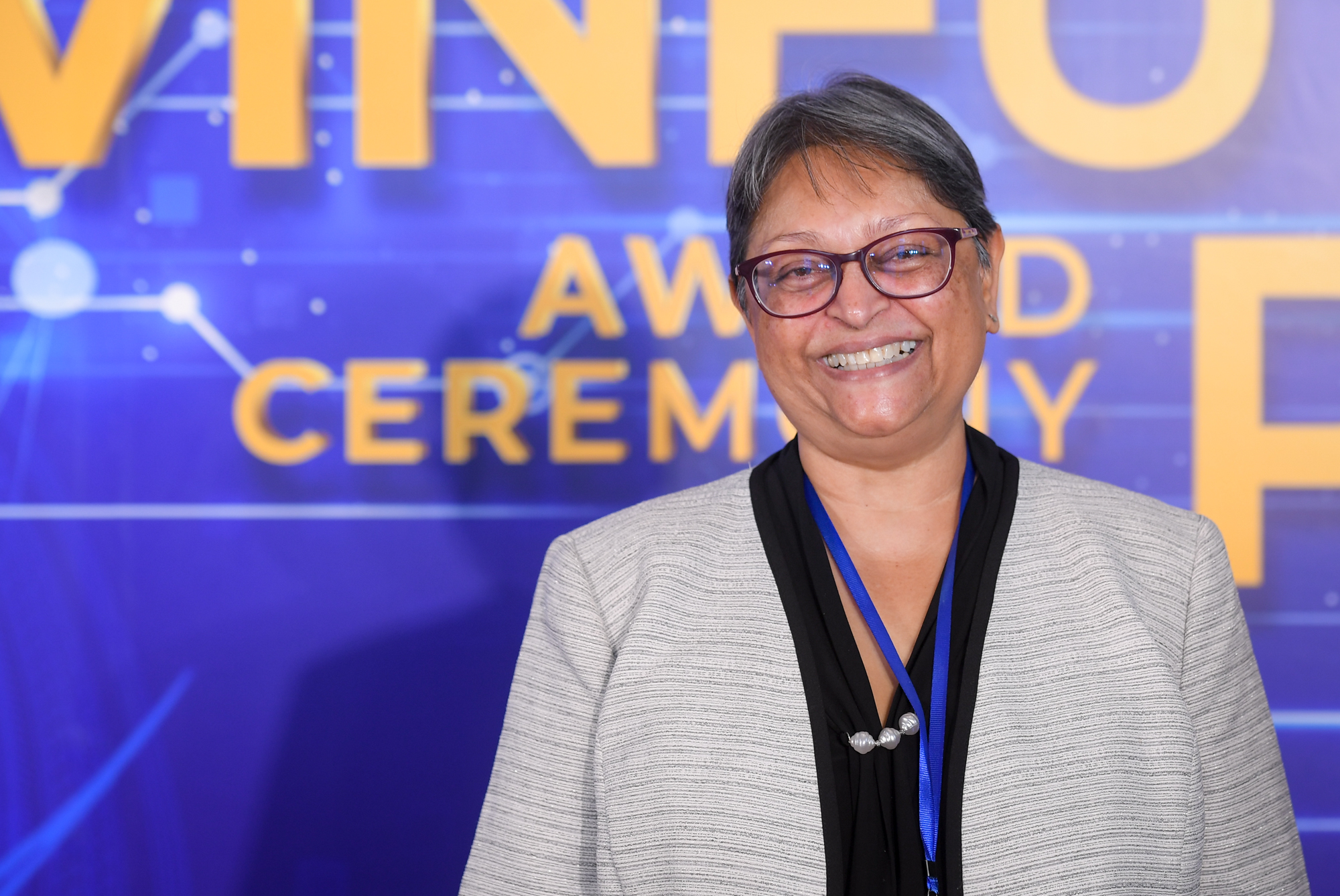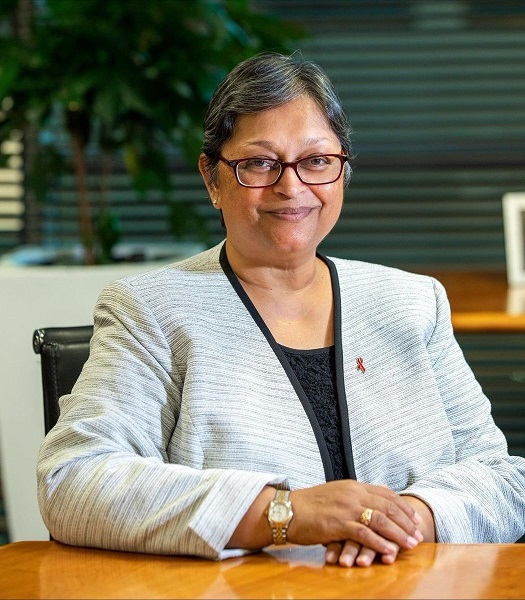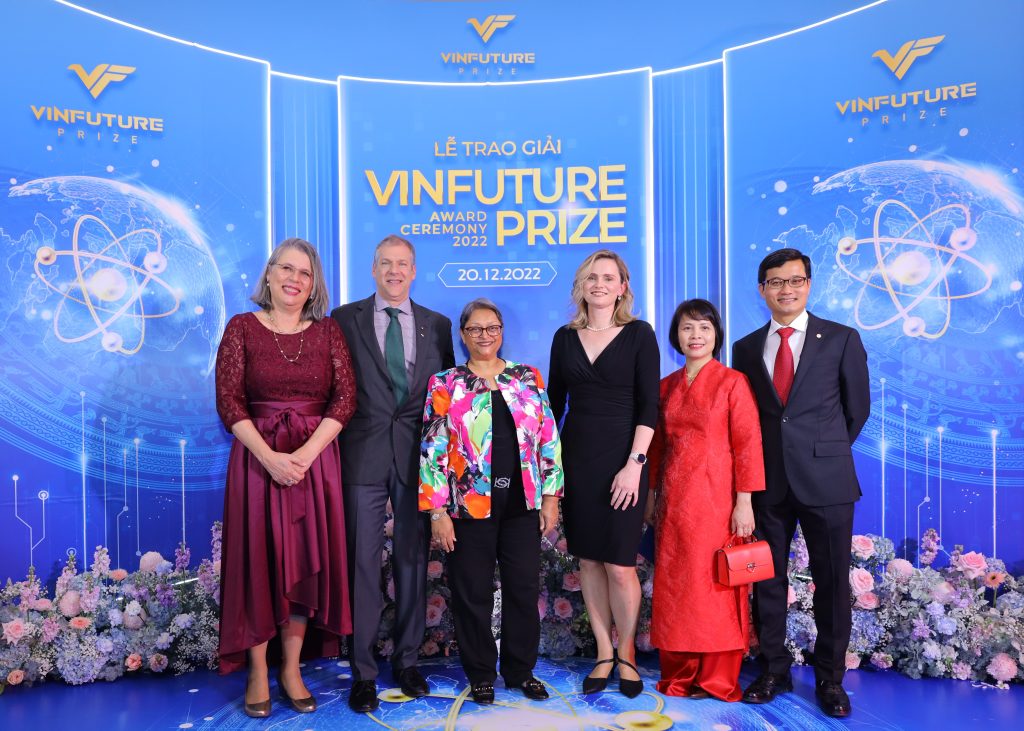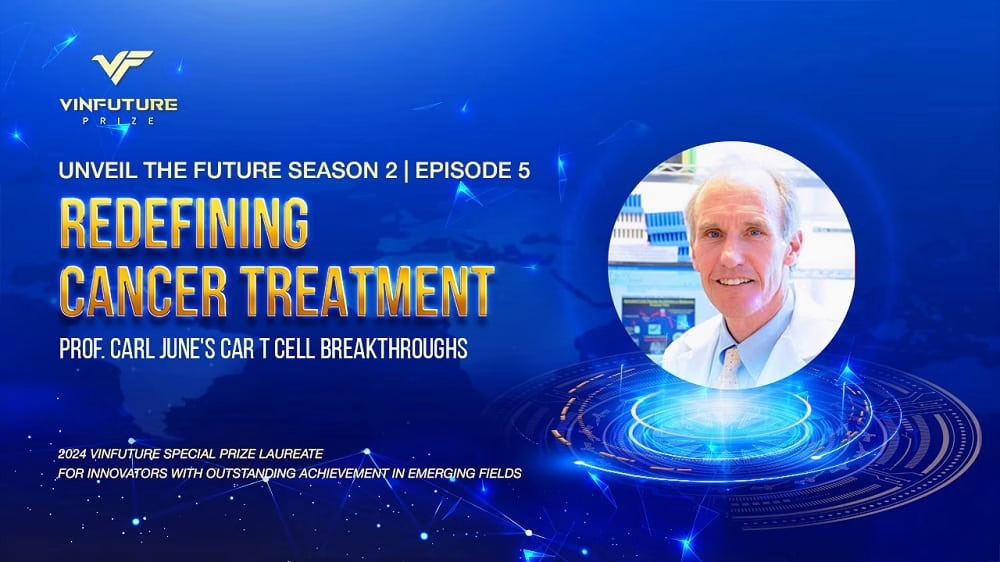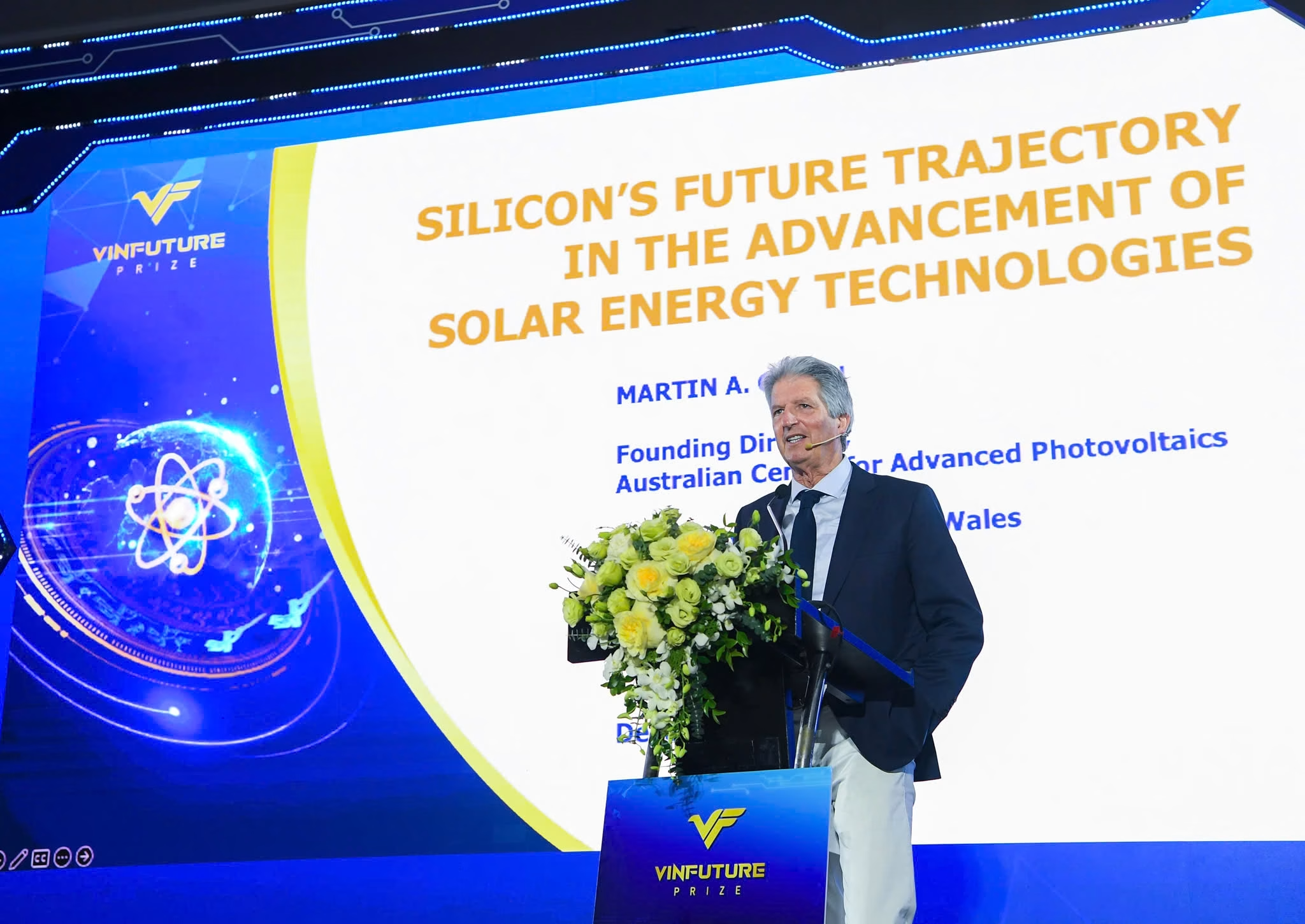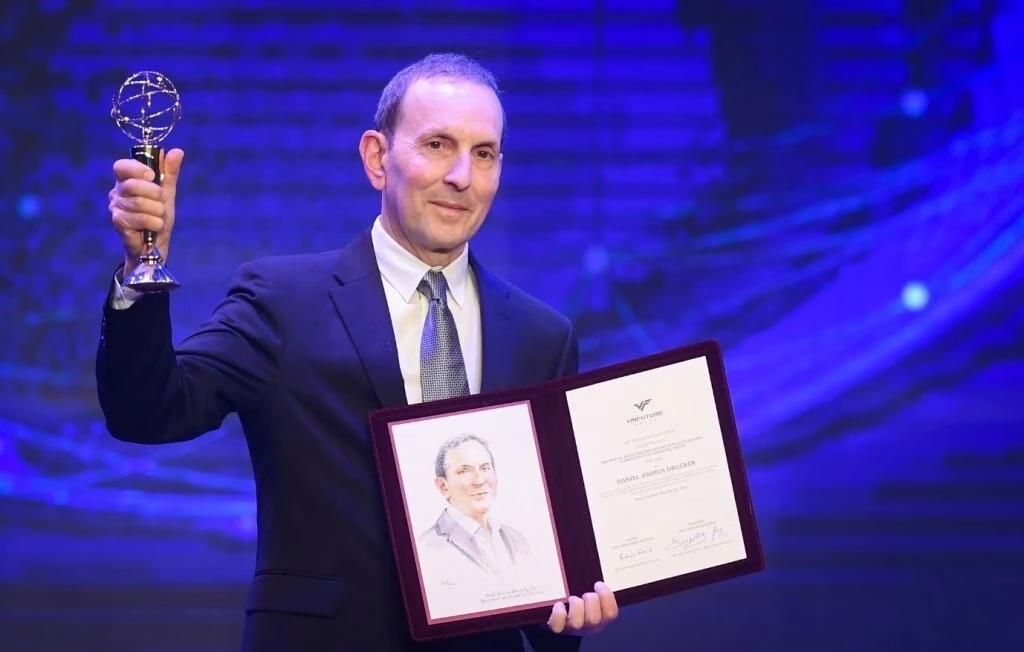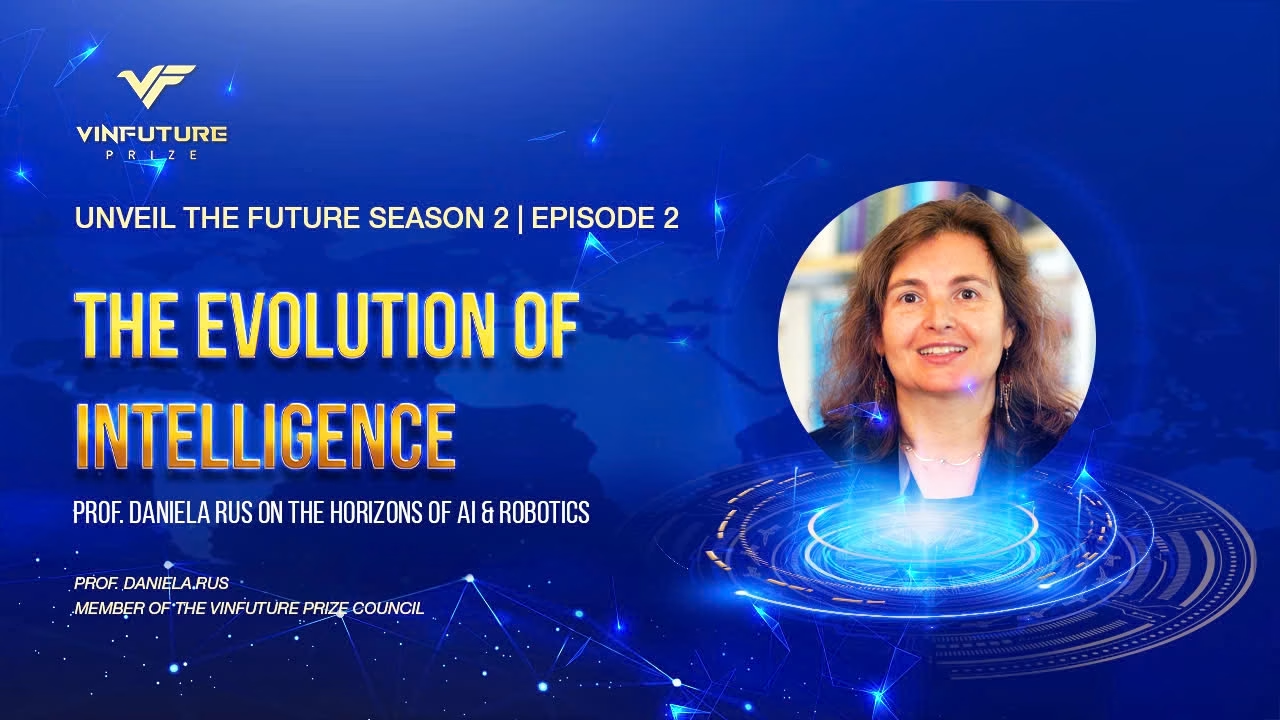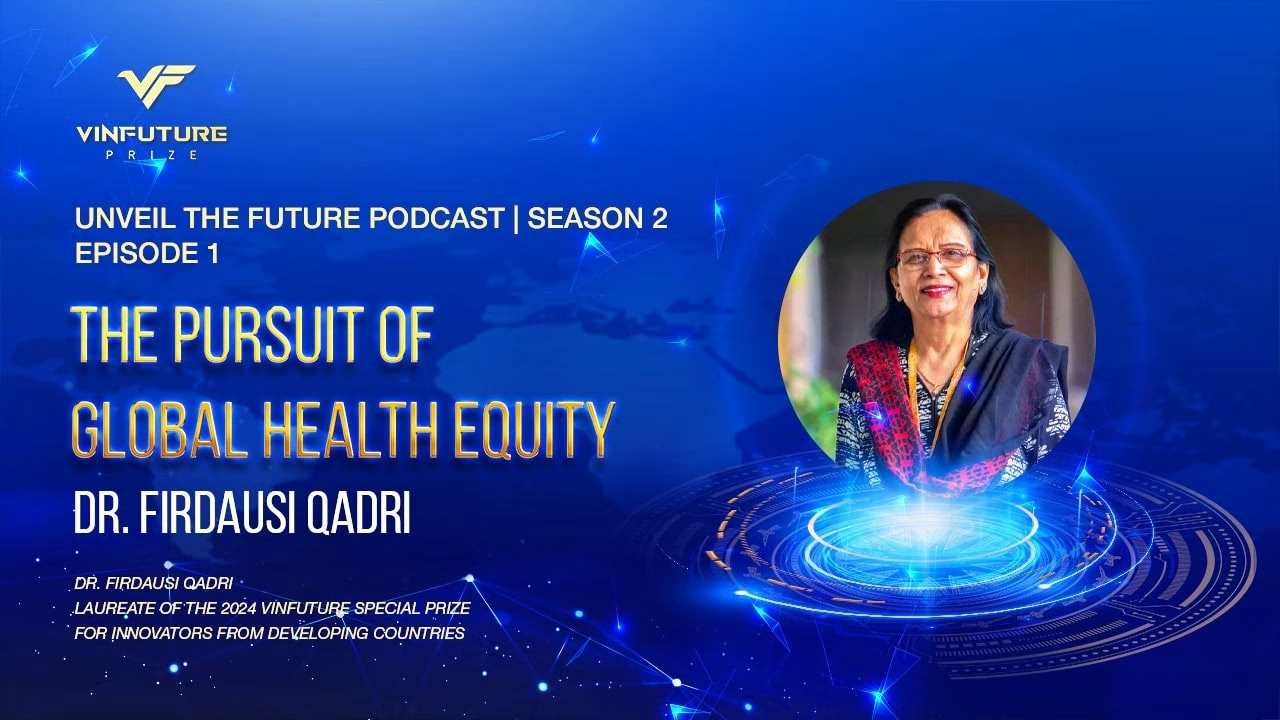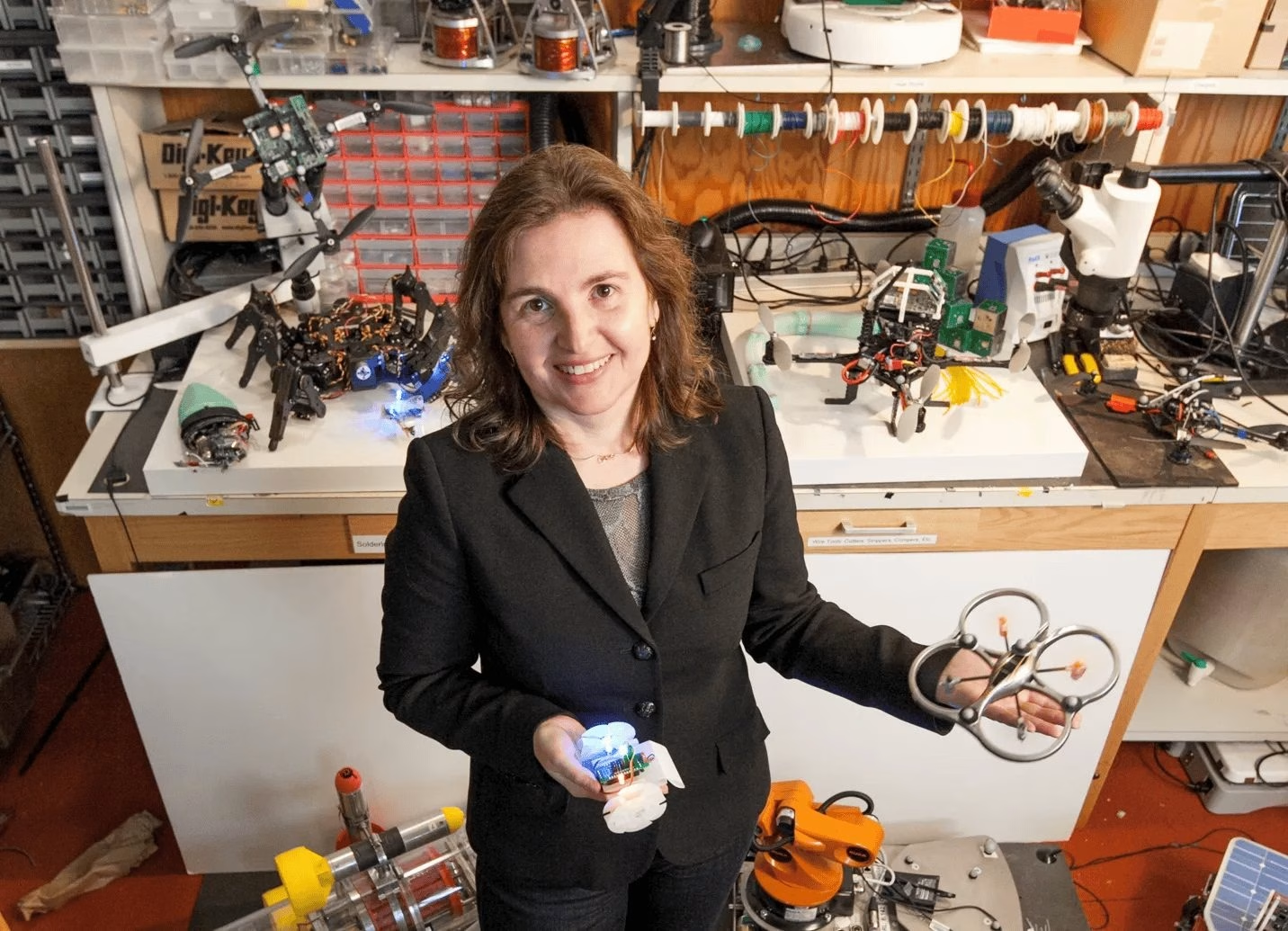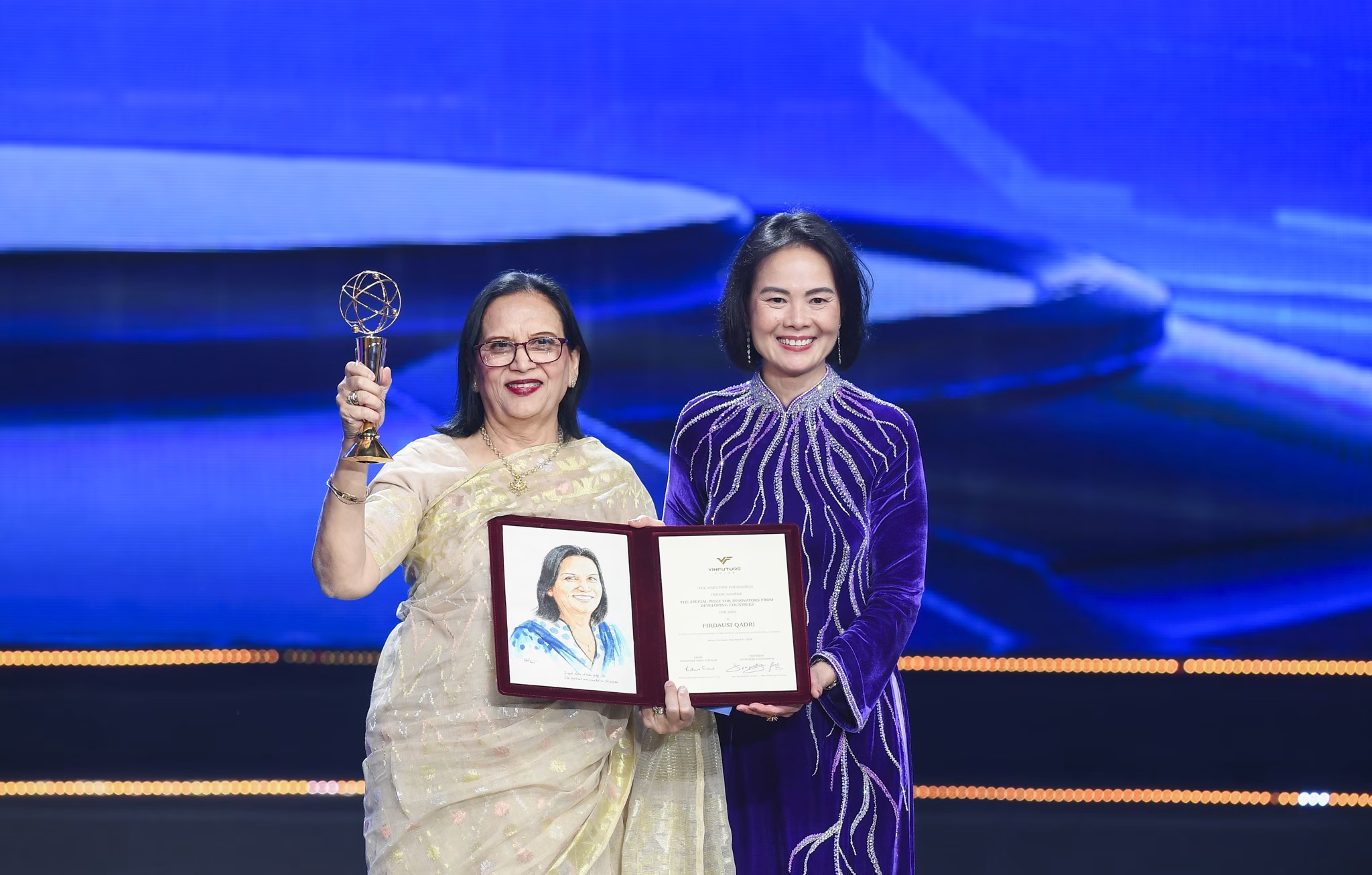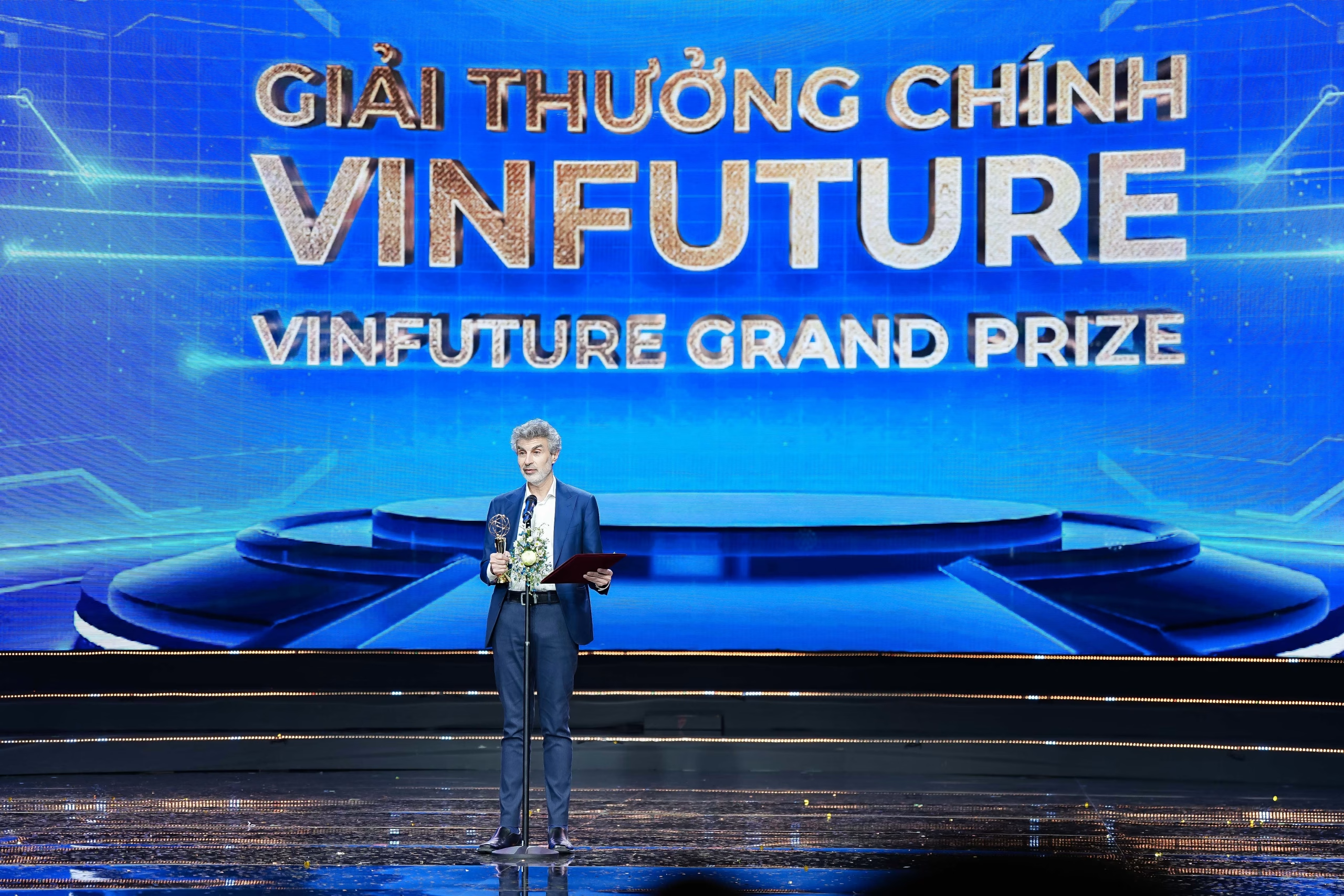In celebration of International Women’s Day, the VinFuture Foundation recently sat down with Professor Karim to discuss her upcoming projects, her experiences as a female scientist, and her advice for inspiring young women looking to pursue science.
Professor Karim is a globally recognized South African scientist and researcher who is making history as the first female President of the World Academy of Sciences. Throughout her career, Professor Karim has won numerous awards and recognition for her work in the field of HIV and other infections. In 2021, she was awarded the prestigious VinFuture Special Prize for Innovators in Developing Countries for her groundbreaking work in a landmark clinical trial that provided initial evidence in 2010 that antiretrovirals prevent the sexual transmission of HIV.
– It has been over two months since you assumed your new duty as the first female President of the World Academy of Science. What have you been working on? And what types of roadblocks and problems did you face along the way?
– Professor Karim: I have taken on the position as President of The World Academy of Sciences (TWAS) since January 1 this year while I continue as the Associate Scientific Director at CAPRISA. I feel really privileged and grateful to have the opportunity to lead TWAS, an organization that turns 40 years in 2023 as I continue to be impressed by the great insight and vision of its founders viz. to use science, technology, innovation, mathematics and engineering to improve the lives of people living in low-income countries.
In the past 40 years, some strong foundations have been built by the founders and previous Presidents that the current Governing Council, that is impressively 50% women, plan to take forward. There are over a 1000 TWAS Fellows who are global leaders in their field; many are mentors to young scientists and lead productive research institutes and centers. As we recruit new Fellows we will pay particular attention to addressing gender balance across all disciplines and representation from under-represented countries.
TWAS has provided doctoral level training opportunities to thousands of young students across a wide range of scientific disciplines. Many of these doctoral graduates are making a big difference in their home countries and together with their mentors, partners and collaborators are realizing the dreams of the TWAS founders. As we move forward more attention will be paid to ensuring gender balance across all disciplines as well as representation from under-represented countries in the selection process of new doctoral students.
Notwithstanding, there are many challenges that low and middle income countries continue to face before the vision of the founders can be fully realized. We are grateful for the funding support we receive from many partners but the past three years of the Covid-19 pandemic are impacting funding commitments from some donors. The TWAS Secretariat and Governing Council are currently paying careful attention to the fund-raising strategy to ensure that some of the doctoral training and research support plans are not compromised.
TWAS has provided doctoral level training opportunities to thousands of young students across a wide range of scientific disciplines. Many of these doctoral graduates are making a big difference in their home countries and together with their mentors, partners and collaborators are realizing the dreams of the TWAS founders. As we move forward more attention will be paid to ensuring gender balance across all disciplines as well as representation from under-represented countries in the selection process of new doctoral students.
– There is one term that I noticed runs across your responses, and that is equity. Do you find any differences in female participation in the scientific community in countries you’ve been to?
– Professor Karim: I am a scientist in the health sector, and for more than a decade now, we have seen an increasing dominance of women in the biological and health fields. In contrast in engineering, the natural sciences and IT while there is an increasing number of women; the pace towards equity especially at a leadership level are wider.
As the number of biomedical and technological solutions increases, we are seeing a widening gap in terms of access and uptake of these solutions, especially in developing countries. I see a role for social scientists working more closely with innovators and developers in new technologies at an early stage of development if we are to close this gap and bringing the general public along as we continue efforts to find solutions to the many challenges facing low-income countries so that there is co-creation and co-ownership of the solution and hence higher levels of acceptability and uptake of solutions.
Public participation and engagement in science are needed much earlier. Enhanced communication with the public to demystify science, technology, and innovation is key, especially in this era of increasing misinformation and dis-information. The more we explain the scientific method, the uncertainties associated with what we do as scientists, the numerous failures and the rare successes, the more I believe we will be able to change people’s lives for the better.
– We spoke a lot about problems and barriers at the beginning of our conversation. What might every country do to eliminate those barriers and difficulties for female scientists? Do they have any benefits or opportunities coming their way?
– Professor Karim: Differences and inequities, whether they pertain to wealth, employment prospects, or contributions to society, do not just happen; they must be actively recognized. Clear plans with timelines and milestones should be put into place and closely monitored to ensure that the plans are effective and impactful. To address gender inequities, we must acknowledge that women are full citizens everywhere and have equal status. This begins at birth, with equal nurturing and support provided to all offspring, including in education. Girls should never grow up believing that they are inferior to boys.
I believe that in addition to being pro-active in addressing the issue of gender equity, role models play a crucial role. If you’re a person of color and you look around you, you don’t see many astronomers who look like you so you don’t see this as a career option. Special awards that recognize women scientists who are breaking through glass ceilings in STEM, especially women in leadership positions, provide younger women with opportunities to imagine and dream of careers in those fields and thinking:
What can I change? What will my legacy be for future generations?
I’m a great believer that you are the architect of your own destiny. Louis Pasteur said: ‘Chance favors the prepared mind’. So think about what it is you want to do. And don’t think about the obstacles and the barriers. Keep your eye on the ball and say: ‘This is what I want to do; I can do it, and I’m going to do it.’ That kind of focus will get you moving forward even when you are not having a great day!
– You’ve assisted Vietnamese students in expanding their horizons. What are your opinions on providing international opportunities to Vietnamese students? What are your expectations and motives for this?
– Professor Karim: My husband and I as co-recipients of the VinFuture Developing country innovation award in January 2021, got the opportunity to visit and deliver lectures at VinUniversity. Through this, we were able to establish relationships with the Faculty of Health Sciences. We had the pleasure of hosting Faculty and several students at CAPRISA in Durban, South Africa. It was for several their first trip to Africa and was an eye-opener in terms of seeing more of the world and identifying common challenges. It reminded me of an opportunity I had to study at Columbia University about 35 years ago and what a difference it made to my life and career trajectory.
When I returned to Vietnam at the end of last year, it was a pleasure to see how these students had continued to strengthen their collaborations with Faculty in Durban and were working on several joint projects.
There is simply no substitute for face-to-face interactions and dialogue. Also, these geo-spatial exchanges are a reminder of our interconnectedness and shared vulnerabilities. At the end of the day, we are one humanity on planet Earth and we need to ensure that we leave a strong legacy for the next generation to build on.
– Having been a VinFuture Prize Laureate and now a member of the VinFuture Prize Pre-screening Committee, do you have any expectations for the new season of VinFuture Prize?
– Professor Karim: When I consider science, I consider that its beauty lies in how it is continually enhancing the lives of people across many scientific disciplines and endeavours. The inaugural VinFuture Grand Prize went to health and medicine and set a high bar for the second Grand Prize that went to the team that contributed to setting up the world wide web, internet and optic fibres creating a revolution on how we communicate with each other across the globe and that helped us continue our work through the pandemic.
I’m keeping an open mind about the third recipients of the Grand Prize and what their contributions are likely to be. It is very likely to be to a team of people rather than an individual, but I’ll keep an open mind and just say that I’m eager to see what nominations are received and look forward to reviewing them as a member of the Pre-screening Committee. The VinFuture Prize Grand Prize is getting a lot of attention and we are seeing an increase in the number and quality of applications.
The additional categories of prizes create a nice balance between the Grand Prize that focuses on a discovery changing lives to what promising innovation is coming down the pipeline.
– Do you have any advice for young, female scientists who are aiming to be researchers or scientists in general?
– Professor Karim: This is an amazing time to be a young female scientist. Starting a career in science at this time is incredible regardless of gender as the significance of science to society is being increasingly appreciated. By choosing to be a scientist, you have made the right decision. Think about what you would like to change through being a scientist and stay focused on that goal.
I look forward to seeing what improvements you make to the planet and humanity. Enjoy this journey with all its curved balls rather than a straight path from point A to point B. It’s a beautiful voyage, so take time to enjoy every step of this journey. There will be many rewards and many challenges, but keep moving forward, and you’ll get there.
Thank you for a wonderful discussion, Professor. We look forward to welcoming you at the 2023 VinFuture Prize Award Ceremony in December.
Cover photo by Việt Hùng.
